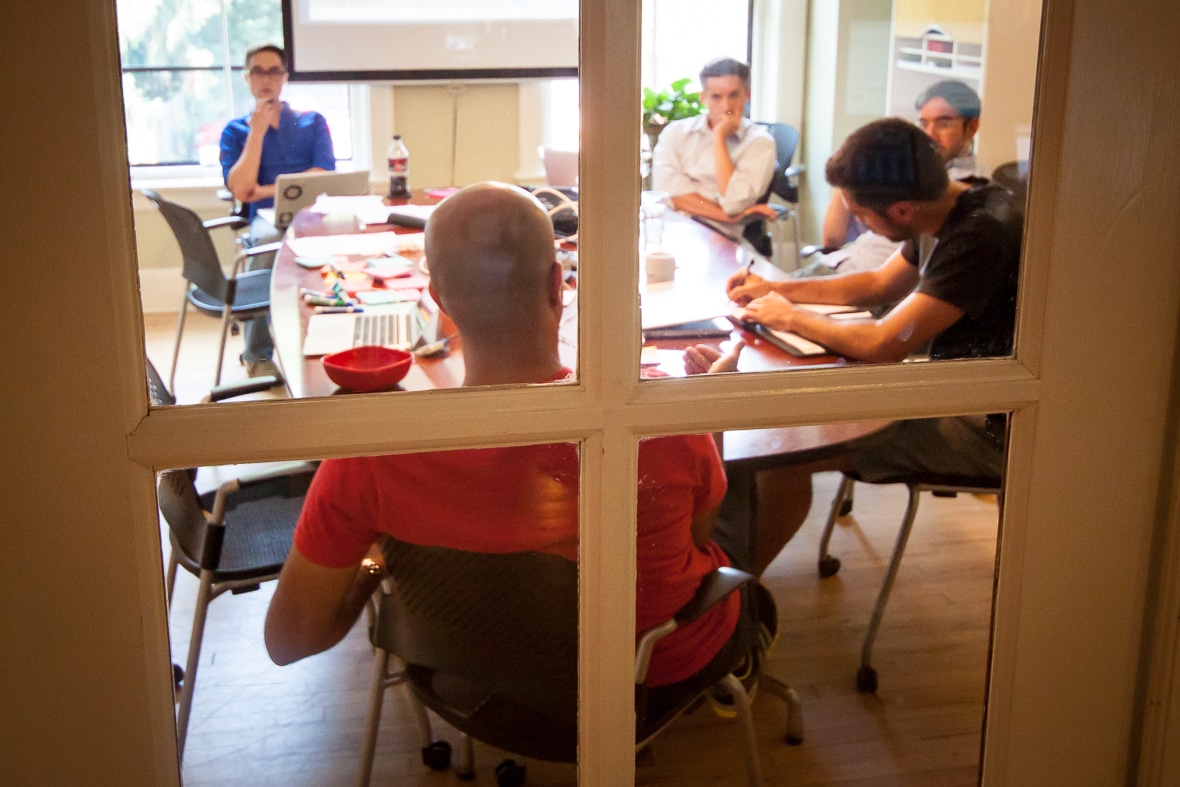
At retrospective meetings, we reflect on how our team has been operating, sharing both the good and the bad. We try to identify problems and take actions that solve those problems.
But just as important as fixing procedural problems is giving individual team members the chance to speak, be heard, and “air-out” anything that’s been bothering us. Ideally, we will honestly share our feedback and perspectives, and humbly acknowledge our mistakes. In reality, though, most of our retros fall short of that standard. Here are some common problems and ideas to help work through them.
“No one says anything.”
If your team is consistently silent during retros, or if they consistently avoid real discussion (“things are fine”), there’s a major problem. Your team is either unwilling to reflect on its own performance or unwilling to share their reflections in front of the group, probably due to a lack of trust. If you’re the project manager, confront this behavior by giving the team specific examples of issues that they’re not discussing.
If you’re not in a position of authority, humbly but honestly offer your opinion to the team. Consider something like, “I feel our retros aren’t very effective. I feel like we’re not able to share openly with each other.” Then watch for your team’s response. They may immediately agree with you, or they may not. If they seem confused, have a couple of recent examples ready of topics that you feel should have been addressed by the group. Don’t get side-tracked by actually debating those topics, but instead focus on the point that you want more openness and participation.
“The real issues aren’t being talked about.”
Sometimes your team might be engaged during retrospectives, but dodges difficult topics. Here are two ideas on how to facilitate an atmosphere of openness and trust:
Acknowledge Everyone
Whenever someone offers a new retro item, write it on the board and leave it there, even if everyone else disagrees with it. Decide as a team whether an action item is needed, but don’t erase or neglect to add the original idea to the board. Following this guideline communicates, “Regardless of whether we agree with you, we hear you and value your opinion.” Besides, later in the meeting, someone may come back and say, “You know, I am starting to agree with that point after all.”
Make it Anonymous
Switch to an anonymous format, where team members write down items on note cards, and the facilitator collects and posts the cards on the board. Group similar items together and discuss each group. Respect the format, and don’t ask, “Who wrote this?” Items can be discussed without revealing their authors.
Take note of issues mentioned by multiple people, as well as issues that have emotional energy associated with them. Work to openly discuss and resolve issues like those. Ideally, the anonymous format would help pave the way toward more effective open-format meetings.
“I just got burned at my retro!”
As you work toward more openness and honesty, it’s expected that, at some point, someone’s opinion will rub someone else the wrong way. Maybe careless words will be spoken, or maybe anger will erupt. When a retro becomes more of a heated argument than a productive, respectful conversation, it might time to say, “This is getting a little too heated. I’d like to take it offline.” Afterward, consider whether there is any lingering conflict that needs to be resolved.
A few weeks ago, I was driving home from work, and I realized that I was still upset about some comments that a coworker made to me during retrospective that morning. Because I went the whole day without being able to brush the incident off, I knew that I had a conflict to resolve. The next day, I setup a phone conversation with my coworker (because she was offsite). My actual words were: “I was thinking about retro yesterday and have been a little bothered by it. There was a point that felt hostile. It felt unsafe.” In response, she acknowledged that the meeting had gotten more tense than she would have liked, and she apologized.
If you confront someone who you feel has wronged you, make it more about you than them. E.g. “I felt disrespected” is easier to receive than “You disrespected me!” Avoid falling into a debate about the original issue, and focus instead on resolving the fact that a line was crossed.
Open, honest, effective retrospective meetings are difficult to achieve but worth the effort! If others aren’t contributing, step up, and lead by example. When conflicts arise, work to resolve them promptly and tactfully.
